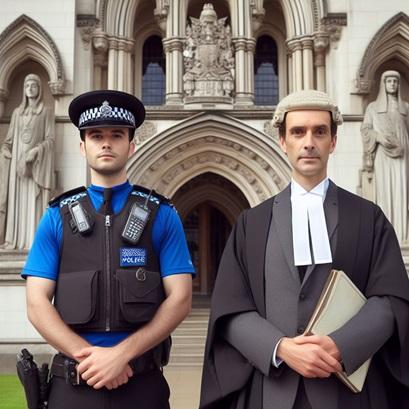In the realm of law and order, the term “unlawful” denotes actions or behaviours that run counter to established laws, regulations, or ethical standards within a given society.
It serves as a fundamental concept in delineating the boundaries of acceptable conduct, guiding individuals, institutions, and authorities in upholding justice and social order. Understanding what constitutes unlawfulness is pivotal for fostering fairness, equity, and respect for the rule of law.
At its essence, unlawfulness encompasses actions prohibited by law. These can range from minor infractions like speeding to more serious offences such as theft, assault, or homicide.
The severity of unlawfulness varies depending on the nature and impact of the transgression, with legal systems categorising offences into different degrees of seriousness, each carrying its own set of penalties and repercussions.
Central to determining unlawfulness is the existence of legal statutes or regulations that explicitly outline prohibited actions and stipulate the corresponding consequences for violating them. These laws are established through legislative processes by governing bodies, reflecting societal norms, values, and priorities.
Additionally, legal principles such as precedent, common law, and judicial interpretation play a vital role in elucidating the scope and application of these laws in specific cases.
Beyond statutory laws, unlawfulness can also arise from breaches of contractual agreements, where parties fail to fulfil their obligations or engage in actions contrary to the terms of their agreements.
Contractual unlawfulness is governed by contract law, which provides mechanisms for resolving disputes arising from such breaches, including compensation, restitution, or specific performance.
Furthermore, unlawfulness extends beyond legal statutes to encompass actions that contravene fundamental principles of morality, decency, or human rights. These may include acts of discrimination, harassment, or abuse that undermine the dignity, equality, or well-being of individuals or groups within society. While not always codified in legal statutes, such behaviours may still be subject to legal scrutiny and condemnation, particularly in jurisdictions with robust human rights legislation or constitutional protections.
The concept of unlawfulness is closely intertwined with notions of justice, fairness, and accountability. A cornerstone of the rule of law is the equal application of legal standards to all individuals, ensuring that no one is exempt from legal accountability.
Upholding unlawfulness through impartial enforcement of laws and regulations is essential for fostering trust in legal institutions and promoting social cohesion.
However, it’s important to acknowledge that perceptions of unlawfulness may vary across different cultures, societies, and historical contexts. What is deemed unlawful in one jurisdiction may be deemed acceptable or even sanctioned in another, reflecting diverse legal traditions, values, and priorities. Moreover, as societal norms evolve and legal frameworks adapt, definitions of unlawfulness are subject to change over time to address emerging challenges and meet evolving needs.
In conclusion, unlawfulness encompasses actions or behaviours that contravene established laws, regulations, or ethical standards within a given society. It serves as a guiding principle in maintaining order, justice, and social harmony, and upholding the principles of fairness, accountability, and the rule of law is crucial for fostering trust in legal institutions and promoting a just and equitable society.
Check out our articles on Rule of Law, Open Justice, Policing, Police News, Policing by Consent, Wasting Police Time, and the highly questionable Sussex Family Justice Board.
We have a number of links to Free Legal Resources and Legal Organisations on our Free Legal Advice , Legal Aid and Pro Bono pages.
We recommend you should always seek formal legal advice if required, from a qualified and reputable lawyer (solicitor or barrister).
Read the reviews of Gavin Howe Barrister
“He is awful, underhanded and should not be practising law!”
Latest Articles
- What is a Paralegal ?A paralegal is a legal professional who performs tasks that require knowledge of legal concepts but does not hold the… Read more: What is a Paralegal ?
- What is a Judgment ?A judgment, also known as a judicial decision or court ruling, is the final decision made by a court of… Read more: What is a Judgment ?
- What is an Adverse Inference ?Adverse inference is a legal principle that plays a significant role in various areas of law, including criminal, civil, and family law. It arises… Read more: What is an Adverse Inference ?
- BarristersA barrister is anyone who has been Called to the Bar in England and Wales. For a barrister to offer… Read more: Barristers




